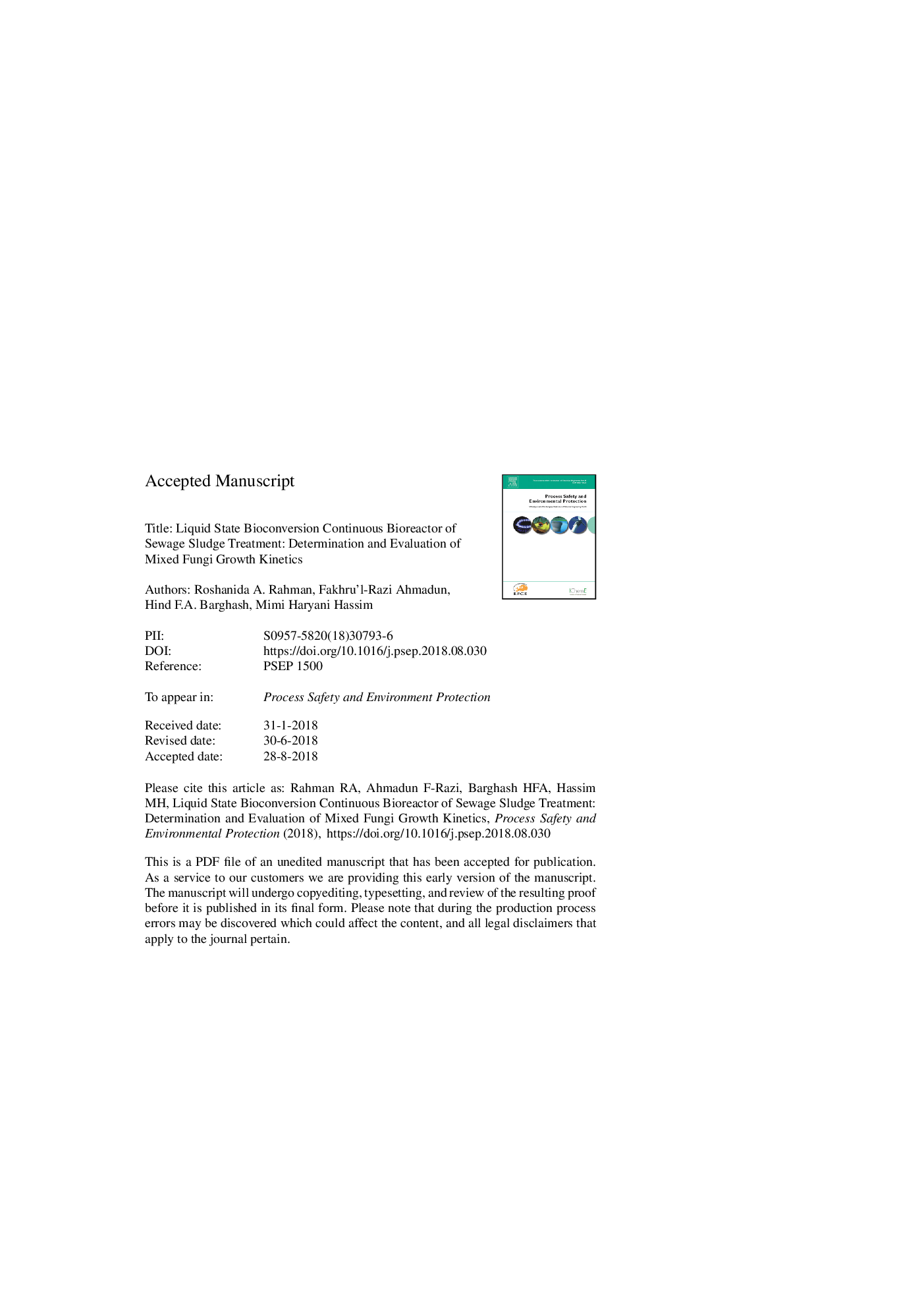| Article ID | Journal | Published Year | Pages | File Type |
|---|---|---|---|---|
| 10146155 | Process Safety and Environmental Protection | 2018 | 41 Pages |
Abstract
Liquid state bioconversion (LSB), a bioremediation and biodewatering process was applied for sewage sludge treatment in this study. The LSB process is a non-hazardous, safer and environmentally friendlier method for ultimate sludge management and disposal compared to the other available technologies. The system presented in this study was developed by using mixed fungi of Aspergillus niger and Penicillium corylophilum to treat sewage sludge in a LSB bioreactor. This research was conducted in order to study the LSB process on continuous system in terms of kinetic coefficients determination. For the continuous LSB process, a mathematical model was developed from the basic principles of material balance based on Monod equation. By investigating the kinetics of substrate utilisation and biomass growth, the kinetic coefficients of growth yield coefficient (Y), specific microorganism decay rate (Kd), half saturation constant (Ks) and maximum specific growth rate (μmax) were found to be 0.79âg VSS g CODâ1, 0.012 dayâ1, 1.78âg COD Lâ1 and 0.357 dayâ1, respectively.
Keywords
Penicillium corylophilumsRTμmaxMLVSSTSSMLSSOLRHRTLSBAspergillus nigerVSsDewaterabilityContinuous bioreactorchemical oxygen demandSolid retention timehydraulic retention timeBioremediationKinetic coefficientsSewage sludgetotal suspended solidsmixed liquor suspended solidsVolatile suspended solidsmixed liquor volatile suspended solidsCod
Related Topics
Physical Sciences and Engineering
Chemical Engineering
Chemical Health and Safety
Authors
A. Rahman Roshanida, Fakhru'l-Razi Ahmadun, Hind F.A. Barghash, Mimi Haryani Hassim,
